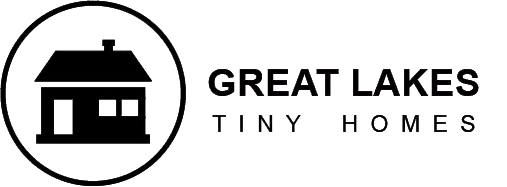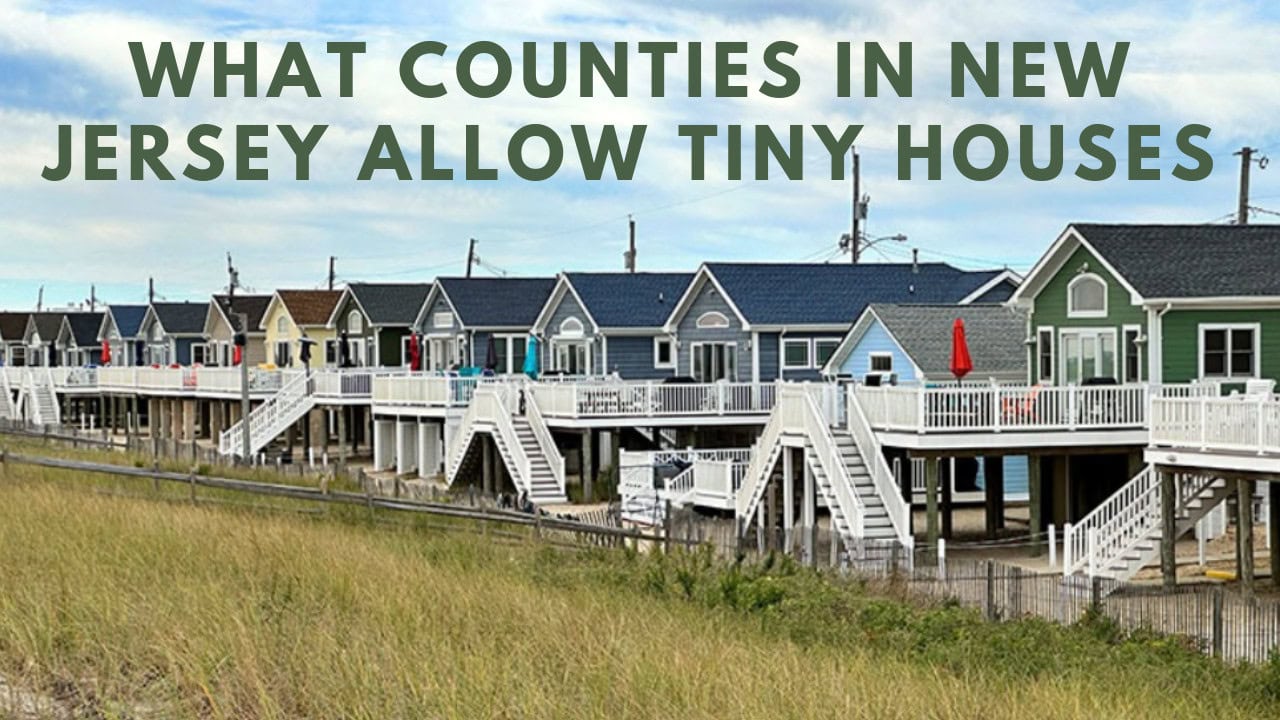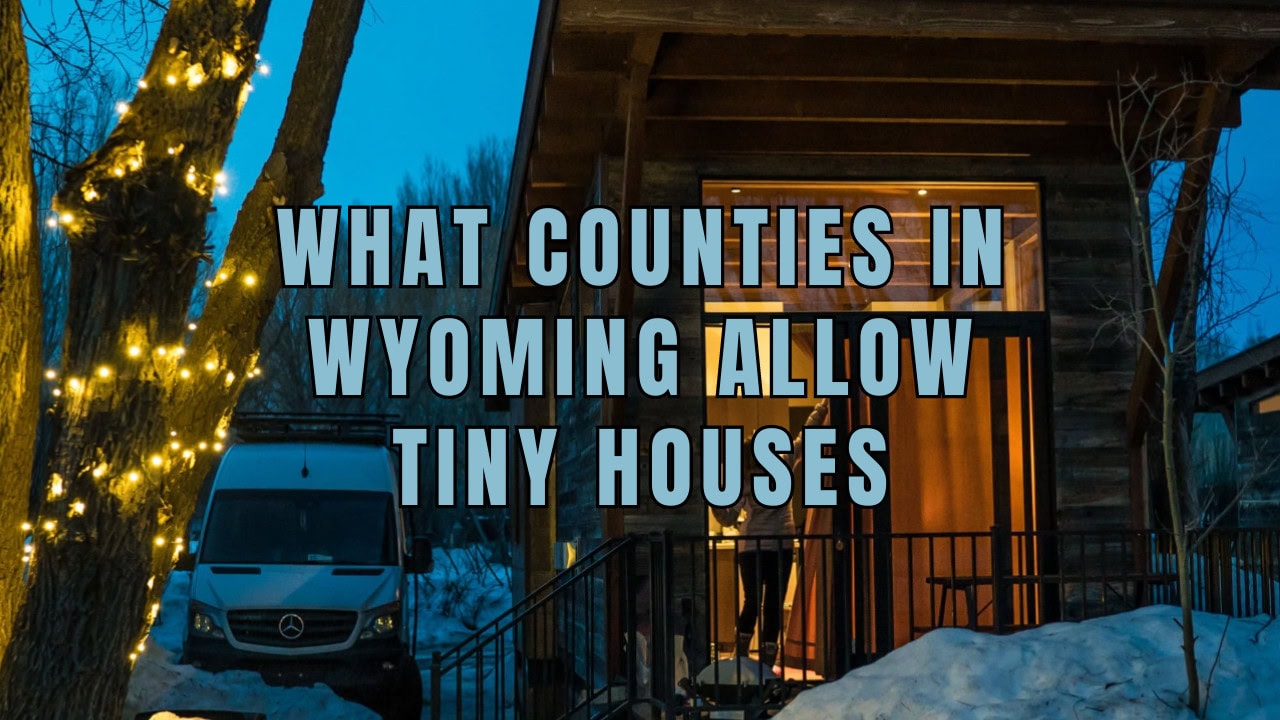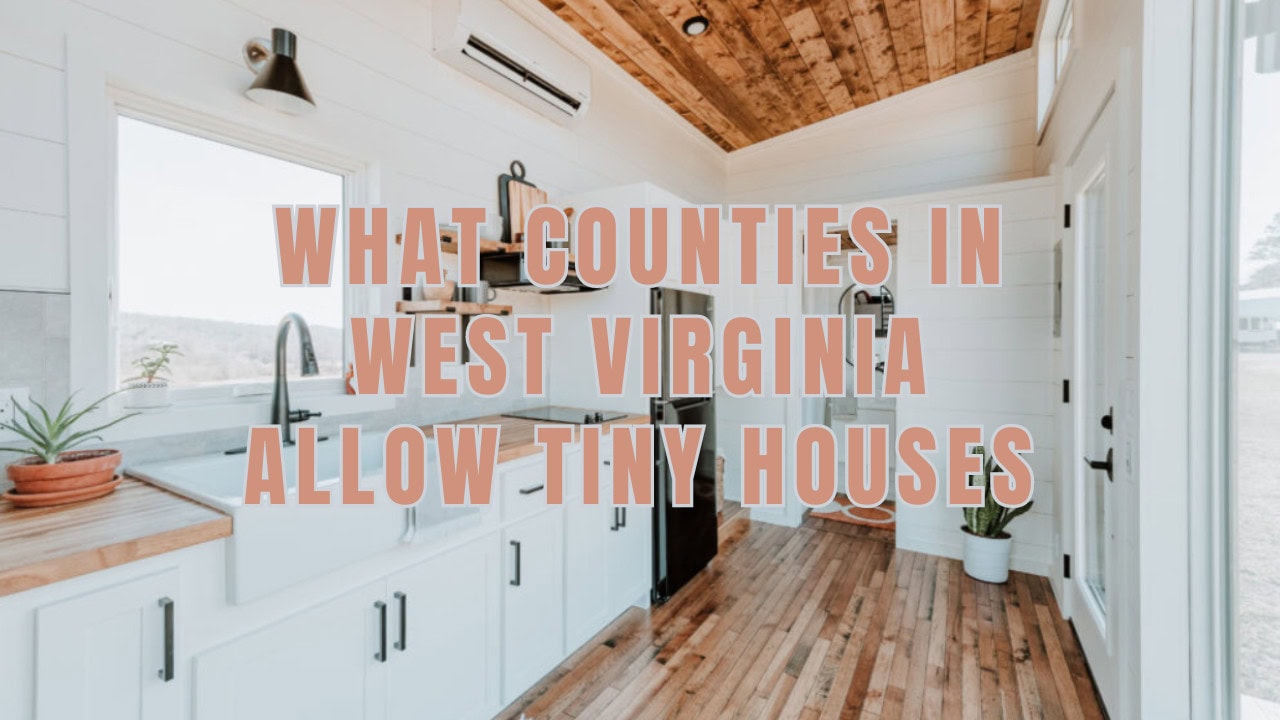In the US, the tiny house movement is becoming more and more common as more individuals look for more economical and straightforward ways to live. Nevertheless, not every state has the same laws governing small homes; in fact, some may outright forbid them.
You must be informed of the zoning regulations and local legislation that are relevant to your area if you intend to build affordable tiny homes for sale in New Jersey. This post will discuss which New Jersey counties permit small homes and what restrictions apply to each.
Can You Make a Tiny House in New Jersey Your Main Residence?
Yes, you can make a tiny home your main residence. Living in a tiny house has several advantages, such as lower maintenance and utility expenses, less of an impact on the environment, and simplified living.
The NJ small-dwelling rules vary from one county to the next. Some locations only permit their use as short-term lodging, while others have restrictions and let them be used as long-term homes.
Cost to Build a Tiny House in New Jersey
According to Forbes, this is the breakdown based on square footage.
- 200 square feet: $30,000
- 400 square feet: $65,000
- 600 square feet: $100,000
When analyzing your budget for a tiny house, consider other related expenses, such as permits, taxes, and other building-related investments. Check out tiny homes in New Jersey:
Fox Hollow
Fox Hollow is a cozy little cottage with opulent furnishings. The many windows and the twelve-foot-tall ceilings create a sense of wide space. Also, the warm, bright cedar inside the paneling gives the space a cozy feel. For individuals wishing to use water off the grid, the existing plumbing is set up to accommodate the installation of a pump and an outdoor shower. The price of this house is $54,000.
Pocono Park Model
The Pocono Park Model has a price of $93,000. A small family or couple can stay in the charming, well-designed Pocono Park Model Cabin. This prefabricated house in Pocono is an excellent choice for a retreat center, hunting cabin, or weekend escape. Additionally, the Pocono Park model cabin has an RVIA seal as standard.

What Counties in New Jersey Allow Tiny Houses?
In New Jersey, zoning and construction regulations differ from town to town and city to city. Therefore, before putting up a tiny house, it is strongly advised to get the local planning and zoning department.
Montclair
In Montclair, zoning regulations for tiny homes are strict. The town requires tiny houses on a permanent foundation, and it must meet the minimum square footage requirements for residential homes.
Additionally, there are restrictions on where tiny homes can be located within the town, limiting their placement to certain designated areas.
Montclair passed an ADU (Accessory Dwelling Unit) ordinance, making it legal to have tiny homes.
Maplewood
The rules in Maplewood often require tiny houses to be placed on a permanent foundation, and they may have specific size restrictions.
Maplewood has also passed an ADU ordinance permitting tiny homes.
Princeton
The Princeton tiny house rules abide by local zoning regulations to ensure the smaller dwellings adhere to specific land use codes and building standards. These regulations are in place to maintain the safety and integrity of the community, allowing for the sustainable and innovative development of tiny house properties within the area.
Princeton is another municipality in New Jersey that has passed an ADU ordinance allowing tiny houses.
East Orange
The local laws require that tiny houses meet minimum square footage requirements and adhere to setback regulations. Additionally, they must be connected to sewage and electrical systems. These regulations ensure that tiny houses are built in a way that is safe and complies with local zoning laws.
East Orange is listed as one of the municipalities in New Jersey that have passed ADU ordinances allowing tiny houses.
Bradley Beach
The Bradley Beach tiny house laws adhere to local zoning regulations, which dictate the size and placement of tiny houses within the city limits.
Zoning laws may restrict the size of tiny homes, specify setback requirements, and designate certain areas as suitable for tiny house construction.
Bradley Beach is another municipality in New Jersey that has passed ADU ordinances, making it legal to have tiny homes.

Tiny House Regulations And Rules In New Jersey
In New Jersey, tiny house regulations vary by location. While some municipalities have specific zoning laws and building codes for tiny homes, others may have restrictions on minimum square footage and utility connections. It is important for those interested in building or living in a tiny house to research and comply with local regulations and rules.
Permanent Structure Rules
Regarding tiny homes on foundations, New Jersey, like many other states that have caught up with the current trends, refers to Appendix Q of the 2018 International Residential Code. For homes that are 400 square feet or fewer, the appendix relaxes other basic code standards.
Tiny House Building Codes:
- The habitable space on the hallways of tiny houses must have a minimum height of 6 ft 8 in. The ceiling height in bathrooms, toilet rooms, and kitchens can’t be less than 6 ft 4 inches.
- For lofts, it is possible to have ceiling heights of less than 6 ft 8 inches.
- Beams, girders, lighting fixtures, and ducts shall comply with the minimum heights mentioned before.
- The minimum floor area for lofts is at least 35 square feet and cannot be less than five feet in any horizontal dimension.
- The loft guards have to be along the open side of the lofts. The minimum height cannot be less than 36 inches, or one-half of the height of the ceiling.
- Tiny houses are required to meet the dispositions of Section R310 in the One-and-Two-Family Dwelling Building Code for Emergency Escape and Rescue Openings, which states that:
- All emergency escape and rescue openings must have a minimum net opening area.
- Basements should have at least one openable emergency escape and rescue opening.
- The code may require automatic fire systems in one- and two-family dwellings.
- Some states, such as Minnesota, have specific requirements for emergency escape and rescue openings in one- and two-family dwellings.
- The code may allow new model code allowances if the dwelling or townhouse has an automatic sprinkler system.
- To install the windows, the bottom of the opening cannot be more than 44 inches above the loft floor, as long as the egress roof access window follows the minimum opening area requirements of Section R310.2.1, which states that the minimum opening area requirements for emergency and escape rescue openings are not less than 5.7 square feet (0.530 m2).
Note: Go through Appendix Q of the International Residential Code (IRC) for additional regulations that may apply to your tiny home.
Temporary Structure Rules
The state of New Jersey classifies vehicles or mobile housing as recreational vehicles, which means you need to follow New Jersey RV laws to avoid legal inconveniences.
The process of titling a mobile home is comparable to titling a vehicle, but unlike vehicles, mobile homes are not registered or inspected. Additionally, there are circumstances where second-hand mobile homes are exempt from sales tax.
To obtain a title for a new or pre-owned mobile home, visit a NJ Motor Vehicle Agency and present the following documentation:
- A valid ID.
- A signed and filled-out original Manufacturer’s Certificate of Origin (MCO) or title.
- In the case of a financed vehicle, the address and Entity Identification Number (formerly corpcode) of the lien holder must be provided. The lien holder will receive the original title.
- A fee of $60 or $85 for a financed vehicle.
Transitional Structure Rules
The requirements for transitional structures in New Jersey, generally for construction or specific purposes, can differ. These structures adhere to safety protocols, have a designated plan for end-of-use, and may require specific building permits.
For a stress-free tiny living experience in New Jersey, it is crucial to be mindful of the environmental regulations and zoning laws. The best approach is to consult with local authorities to determine the specific laws and guidelines applicable to your case.
In New Jersey Where Can I Build A Tiny House?
Before beginning a New Jersey tiny home project, it’s crucial to do your homework and speak with the relevant authorities to ensure all the rules are followed.
Among the options for where to build a tiny house in New Jersey are:
- ADUs
- RV parks and campgrounds
- Tiny house communities
- Private property
- Farm stays and homestays
- Mobile home parks
Note: Depending on how the small house is classified, various jurisdictions in New Jersey may have varied property tax requirements. Like RVs, a tiny house on wheels could be subject to personal property taxes.
Tiny Home Communities in New Jersey
You may grow personally and have access to shared resources when you live in a tiny home community. Considering the neighborhood is on a genuine farm, residents can labor in the soil and cultivate their food. In New Jersey, there are a few tiny home communities:
Vernon Township
This community in North Jersey has tiny homes available for purchase.
Ocean Beach III
It is a small seaside section of Toms River Township with a close-knit community of tiny houses.
Tabor Village in Goshen
Established in 2015, this community currently has the sense of a close and exclusive community.
Tiny House Builders Near me
With Great Lakes Tiny Homes’ variety of models and countrywide shipment, you may locate the house of your dreams without searching for builders in your area.
Moreover, RV Industry Association (RVIA) membership is held by Great Lake Tiny Homes. This accreditation serves as live evidence of the high manufacturing standards and adherence to building, safety, and regulatory requirements for small dwellings.
Do I Need a Certified Builder?
The RVIA, which stands for Recreational Vehicle Industry Association, certifies that the home complies with construction, plumbing, electrical, heating, and fire safety regulations.
Recognition and acceptance
Possessing an RVIA-certified tiny house improves its acknowledgment and approval from relevant parties, such as residential zones, insurance providers, and financial institutions.
Insurance
Because a small house with an RVIA certification meets safety and quality criteria, it is simpler to get insurance for one.
Financing
Purchasing or developing a small house now has more financing alternatives because of the RVIA certification.
Safety
Your tiny house demonstrates that it complies with industry safety requirements by bearing the RVIA seal.
Nationwide Access
RVIA-certified small homes may be constructed by homeowners in any state where they are permitted. Zoning and construction code compliance is ensured by the RVIA seal.
Resale Value
Potential purchasers could be more willing to purchase an RVIA-certified small house.
Note: Only manufacturers with permits, like Great Lake Tiny Homes from the Recreational Vehicle Industry Association (RVIA), can build approved tiny homes.
FAQs
Is It Legal in New Jersey to Build Small Homes?
Yes, without a doubt. The state’s basic requirement for small dwellings is based on Appendix Q of the International Residential Code, which is enlarged from the IRC. Appendix Q contains the standards for the various areas of a small home, including the minimum square footage needs and areas such as stairs, ceiling height, numerous rooms, loft space, emergency escape, and more.
How Little Can a New Jersey Home Be?
There is no minimum dwelling size regulation in New Jersey, so you may build your tiny house as little as you desire. Tiny houses are defined by state rules as residential structures with 400 square feet or less of floor area, excluding lofts.
All that’s needed is for at least one area can double as a kitchen, living room, or bedroom.
You also need to connect to city water and sewer lines if they are available; if not, you need to set up your septic system.
Can I Put a Tiny House on My Property in New Jersey?
Yes, you are allowed to construct a second home on your land. But before you begin building, there are a few things to consider.
- First, confirm if the land is designated for more than one residence.
- The next step is to get the required permits from your municipality.
- Lastly, while building a new home, you must adhere to all building code regulations.
If you follow these steps, you should construct another home on your New Jersey land.
Conclusion
Tiny dwellings are permitted in New Jersey, but only under specific circumstances. Before purchasing or constructing a small house in New Jersey, make sure it conforms with all applicable municipal and state rules by doing some research.
If you are unsure about the layout or construction of your small house, you should also speak with an architect or engineer. You may appreciate living in a tiny place and respect the neighborhood and environment by adhering to these rules.





